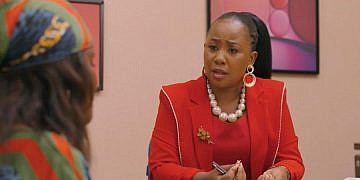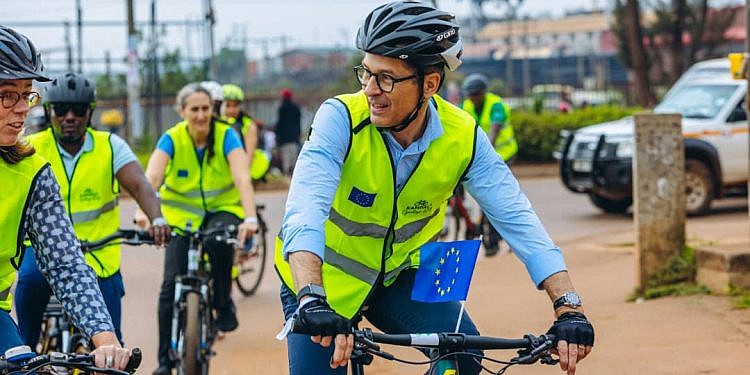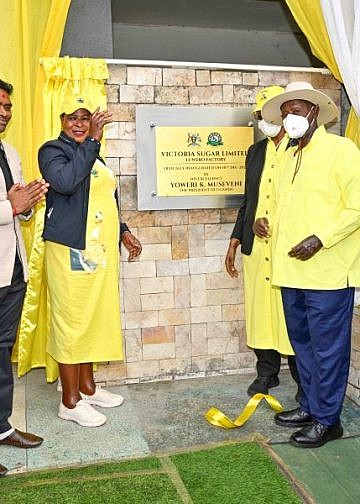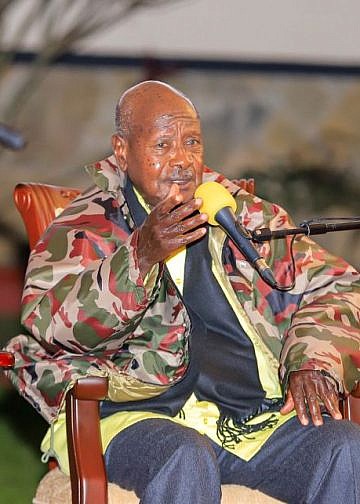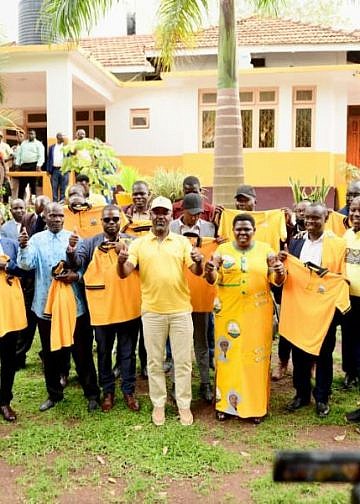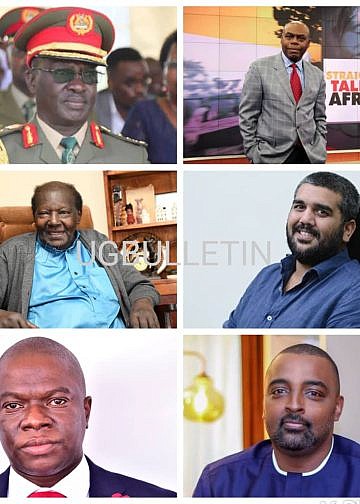The Head of the European Union mission in Uganda, Jan Sadek has made a case for promotion of cycling in Uganda’s capital, Kampala.
Speaking during a cycling exercise from KCCA offices at City Hall to Kololo Senior Secondary School as part of the EU Green Diplomacy Week and Kampala Cycling Day, Sadek said there are immense benefits in cycling that Ugandans can take advantage of.
“Bicycles are a good mode of transportation. They will reduce carbon emissions. Obviously, there’s no engine and your legs are the engine. They will also ease congestion in traffic, and it’s a very healthy alternative. You get stronger by bicycling,” Sadek said.
He explained that by cycling, two birds can be hit with one stone in terms of reducing carbon emissions and protecting the environment.
“I think each and every Ugandan, each and every person in Kampala, has an individual choice to make. You can choose to go by car or by bike. My message to all the citizens in Kampala is to try the bike as a mode of transportation.”
The onset of the Covid pandemic which saw government ban the use of public and private transport in 2020 saw a booming demand for bicycles.
A number of Ugandans have since then never turned back as they do cycling to work.
However, there is still a challenge of a lack of dedicated lanes for cycling which makes users vulnerable to accidents from vehicles.
Speaking on Friday, the head of the EU mission in Uganda called for concerted efforts to ensure dedicated cycling lanes are put in place.
“We can also push the authorities to try to have more bicycle lanes and safer bicycling in Kampala, so that many more people can use this fantastic means of transportation instead of cars, which pollute and congest traffic and streets.”
Acting KCCA Executive Director, Frank Rusa said with the high levels of pollution in Kampala, cycling is the way forward.
“Let’s keep this culture of cycling going. It is good for our city. Let us start thinking in terms of getting out of these cars and using bikes, especially for short distances. We shall make our environment better, but also our health will get better,” Rusa said.
“There is a lot of work to be done to make cycling easier in our cities. We are talking about lanes; we are talking about the way we do our infrastructure. Planning has to take into account the need of promoting non-motorized transport.”












